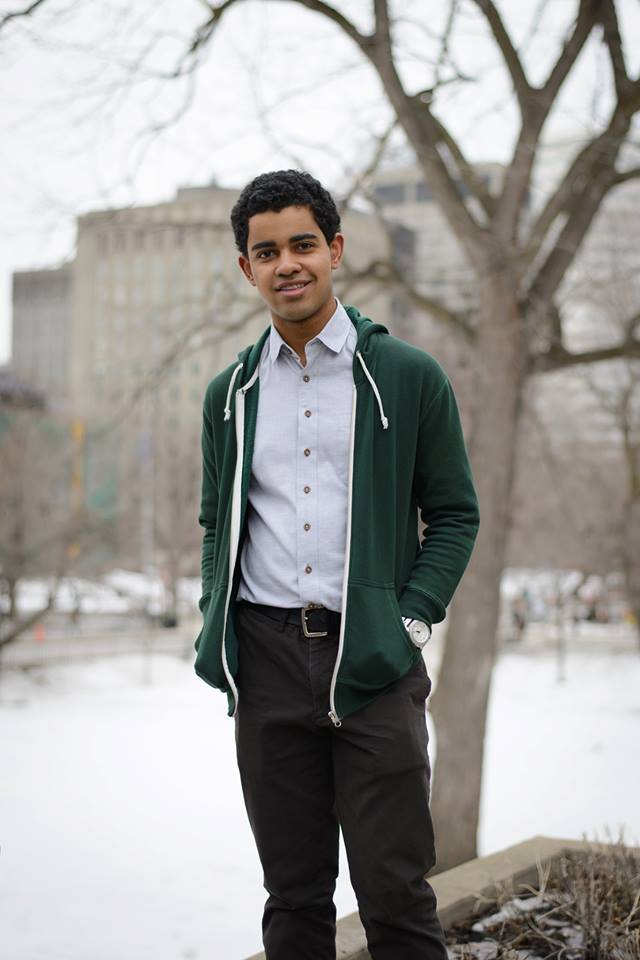For Carl Ulysse, working at neurologist Lesley Fellows’ lab was both an inspiring and rewarding experience. Unsure what to do with his summer after completing his first year in medicine, Ulysse applied to the Faculty of Medicine’s research bursary program, which provides funding for student research for eight weeks during the summer.
Through the program researchers list projects on a website, which students can sift through and use to apply to various supervisors. Through this process, Ulysse stumbled across Fellows’ research and was excited when she accepted his application to assist her in her project regarding HIV and its impact on people’s cognitive abilities.
Fellows specializes in disorders of cognition. Her research focuses on the functions of the frontal lobes, which are involved primarily in controlling emotions as well as many other functions like memory and problem solving.
“[Fellows] is a clinician scientist, so she does a bit of both clinical medicine and research,” explains Ulysse, “For this project, she works with a whole team. There is a psychiatrist, neurologist, kinesiologist, and an occupational therapy and physical therapy psychologist. They are basically working to help people with HIV deal with their cognitive issues.”
According to Ulysse, the HIV virus targets the brain, causing a host of problems. “It’s really hard to detect, and really hard to treat, so I’m trying to do something about that,” adds Ulysse.
In response to the virus’ detrimental cognitive effects, Fellows’ lab is working on developing means for those afflicted to deal with cognitive impairment.
“My project is developing a self-management program for cognitive impairment,” explains Ulysse, “So I’m building scripts for people […] to use to learn tips and tricks about attention and memory. I’m working a lot with the computer, actually, because I’m working on the scripts, but I shadowed a bit in psychiatry and neurology to see what the people I was targeting were like.”
According to Ulysse, “Script writing is [essentially] data analysis. I had never done it before, so I just learned it now. I definitely regretted not taking a statistics class [before]—it would have been useful!”
Ulysse based these computer scripts off of research he gathered from his time shadowing at Royal Victoria Hospital (RVH), as well as from surveys distributed by the lab. Though it was a daunting project, Ulysse was happy to take on the challenge.
In addition to script writing, Ulysse found that he developed strong problem-solving skills over the summer thanks to his lab work.
“The project I’m doing right now is not [actually] the project that I applied for. We’re dealing with an online survey, but the response was not high enough so I had to do a turn-around and find something else to do with the help of the lab. That’s something you have to learn how to deal with: What do you do when something doesn’t work out?”
Despite this challenge, Ulysse loved the experience he gained this summer from his time in Fellows’ lab. Working with so many scientists, he was inspired by this opportunity to see firsthand an interdisciplinary team of researchers collaborating together—a novelty that his classes emphasize will form the future of medicine. Although Ulysse is unsure of where he wants to be in 10 years, he says he feels that research will probably be part of it.
Favourite lab task:
“I shadowed a psychiatrist for awhile, and that was really interesting. Getting to see the people I was working for—that was really inspiring, I felt like I was doing [my work] for a reason.”
Least favourite task:
“The survey was definitely kind of frustrating. I thought it would be done before I starting working at the lab […] but we sent it to all these organizations and we were not getting the feedback we wanted. It’s probably just because it was summer…[the volunteers] have other commitments and are not full-time workers—they’re just volunteering and they need to take a break at some time too.”
Advice for students applying to a lab:
“Contact people as soon as you can, at the beginning of the year, because a lot of professors are interested in having people help them out, but so many students are interested that when you apply, all the projects are taken.”
If you could be a mad scientist, what would you do in your lab?
“I used to really like Pinky and the Brain, so I’d probably be plotting for world domination—it was one of my favourite shows when I was little.”
Favourite ice cream flavour:
“Something with chocolate chips!”








